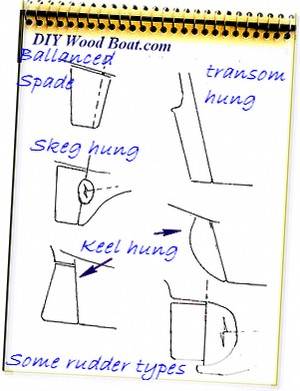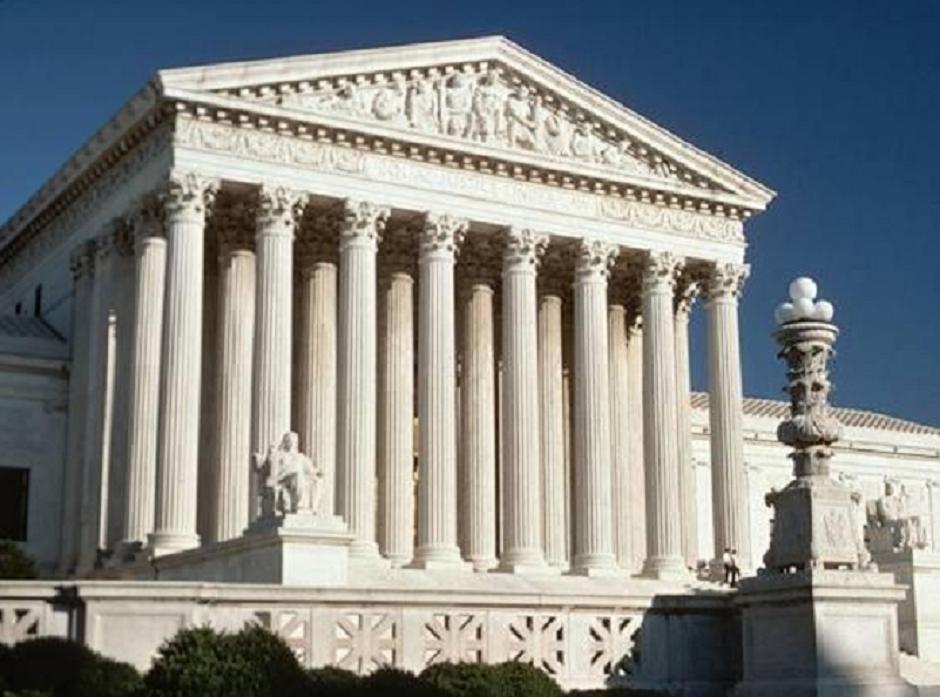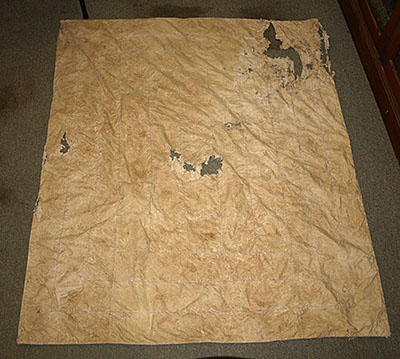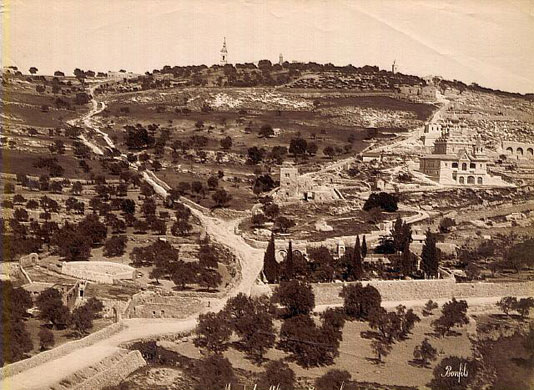Praise and Insult: Stone and Flint
Isaiah 50:4-9
Silence
The lord YHWH has given me a "taught tongue." The prophet acknowledges God as the true origin and source of the grace he has received to minister to others. Though the NRSV translates leshon limmudiym as the "tongue of a teacher," it is probably better think of a "trained tongue" (a "learning tongue," the kind of tongue that those who are [being] taught, instructed, or trained in some skill would have). When we think of the tongue of a gifted teacher, we may imagine the sorts of words that would flow from such a teacher's mouth: we may think how beautiful, wise, and helpful such words would be. However, the primary characteristic of a good teacher's (or student's) tongue is SILENCE. And the prophet has been given a "students' tongue." Only good students (listeners) make good teachers.
I think we can learn much from the instructions of another teacher who valued silence. In the Rule of St. Benedict (RB VI. De Taciturnitate) we are reminded by the teacher of the Psalmist's wise counsel: "I will watch my ways that I may not sin with my tongue; I will bridle my mouth...I was silent and still; not even saying anything good" (Psalm 39:1-2, NRSV). Quoting Proverbs 10:19 (when words are many, sin is never absent) and 18:21 (the tongue has the power to kill and bring to life), Benedict says that it is mostly better--no matter how good, holy, or beneficial the words, and no matter how advanced the disciple (perfectis discipulis)--to be silent. Students, no matter how mature, will benefit from additional listening.
(Image Source: http://swandive.typepad.com/.a/6a00d83451e15a69e20105361949ed970b-500pi)
Though Benedict does not make reference to it, a good commentary on the value of silence can also be found in the New Testament book of James (1:4-5; 3:1-10, etc.). James reminds us (as does Isaiah) to recognize the Source of wisdom and faithful endurance in life's trials, and therefore also to pray for help and listen for instruction. James tells us to bridle our tongue, to refrain from teaching, and to speak only when we must--and then only to encourage and help our fellow travelers.

(Image Source: http://www.diy-wood-boat.com/images/Rudder_types.jpg)
Isaiah's point seems to be much the same. He, a prophet and teacher, has learned to shut up and listen to the Source. In this way, he insures that when he does speak, his words will be appropriate and helpful to others.
To know [how] to ... [?] the weary [with] a word. The meaning of la`uth is very much in doubt (BDB). HALOT relates it to the root that means bend or stoop, be crooked or deceptive. Since it hardly seems fair to bend someone who is already faint, the substitutions provided by the NIV (et al.) will have to suffice: to know the word that sustains the weary.
He rouses morning after morning; he rouses my ear to listen like those who are taught. Whatever the meaning of the intervening line, whatever "helpful" word has been spoken to the faint or weary companion, it is clear that the prophet has returned here to the theme of silence and listening, with the attendant meanings (for a learning student) of paying attention to, complying with, obeying, and accepting. The prophet/teacher cannot impart what he has not received. He or she must always return to God, the Source.
The lord YHWH opened my ear and I was not rebellious; I did not backslide. The import seems to be that the prophet-student received a difficult word of instruction or assignment to complete from his divine Teacher. But he has not hesitated to carry it out, despite the difficulty. As one who listens carefully, in silence, the student is well prepared by his Teacher to take on the tough assignment.
Insult & Flint
My back I gave to the beaters and my jaw to those pull out hair; my face I did not hide from insult and spit. The assignment is one that involves the pain, humiliation and abuse of the student. Hence the appropriateness of the previous comment about not turning away. The student could have flinched, but he didn't. Any disciple would be tempted to opt out of this particular assignment. So, it is necessary for us to ask: what assignment could be so important to a student's learning and growth that it merits the endurance of such treatment?
But the lord YHWH will help me, so I am not humiliated. ...so I set my face like a flint, and I know I will not be shamed [by failure]. That last verb (bwsh) has to do with the kind of shame endured by a routed army or someone who has failed a mission--or, to continue the student/disciple metaphor, someone who has failed a test. The prophet-student knows that the Master Teacher, God himself, will be at his side throughout the ordeal, insuring that the student will have every resource required to succeed. Nevertheless, flint-like resolve is required.

(Image Source: http://www.xmission.com/~jbdaniel/assets/flint.jpg)
The [judge] who declares me innocent is near. Who will charge me? Let's take our [opposing] places [in court]. Who is my opponent? [lit. "the owner of my case"] Let him approach. The ordeal that the student-prophet is facing appears to be forensic or juridical. There is a case to be tried, and the prophet likes his chances with the Judge--who is also, of course, the Teacher.

(Image Source: http://law.marquette.edu/facultyblog/wp-content/uploads/2009/06/supreme_court_building.jpg)
Indeed, the lord YHWH helps me. Who can declare me guilty? But they are all like [old] clothes; they wear out. A moth eats them. Again, the prophet is certain of success, despite the rough going for the moment. Over the long haul flint lasts, but clothes wear out. With God on his side, the prophet has nothing to fear from a wayward judgment.

(Image Source: http://farm4.static.flickr.com/3403/3662196267_95494578bd_o.jpg)
Luke 19:28-40
Noise
Though it cannot be proven, it is likely that any festival "ascent" (anabainon) into Jerusalem was accompanied by psalmody. There must have been some singing! As Jesus nears the Mount of Olives, he (the Master Teacher) gives two of his students an assignment. They are to retrieve a colt (or foal) which has never been ridden ("on which no person ever sat"). They are to loose the colt and bring it to Jesus. If anyone in the unnamed adjacent village asks about their assignment, they are to say only "The Lord needs it."
The assignment could easily have been a confidence-building exercise. The colt was where Jesus said it would be. The villagers ask the very question Jesus had said they might, and the disciples' answer appears to have sufficed: "The Lord needs it" was enough. Note: perhaps there is a subtle play on ho kurios autou and hoi kurioi autou, "its lord needs [it]" and "its owners [lords] asked." The disciples are expected to listen (=obey) without knowing everything that the Master Teacher knows.
A+ ... so far, for them. What about us? Have we been listening carefully? ...or are we already making unfounded assumptions? E.g., that the colt must be a donkey? ...or that the scene must be filled with palms and shouts of Hosanna? Luke doesn't mention the palms! And the Hosannas can only be implied.
(Image Source: http://www.abcgallery.com/S/semiradsky/semiradsky33.JPG)
They threw their cloaks on top of the colt as something of a makeshift saddle and set Jesus on the colt. And as Jesus went along, people carpeted the road with their cloaks. And as they came to the place where the road starts down the Mount of Olives, the whole gathering of students began rejoicing with praise to God with a loud noise for all the examples of [God's] power they had seen.

(Image Source: http://static.guim.co.uk/sys-images/Guardian/Pix/pictures/2009/8/14/1250254760501/Mount-of-Olives-Jerusalem-019.jpg)
Praise & Rocks
Blessed is the king who comes in the name of the Lord!
Peace in heaven and glory in the highest!
And some of the Pharisees in the crowd said to him [Jesus], "Teacher, give your students a warning." Clearly, the Pharisees have in mind the sort of instruction that is given in Psalms and Proverbs and James about the need for students to keep their tongues in check--to keep SILENT, so that they may better hear and obey the Master Teacher. Jesus had warned his students before about inappropriate comments and exclamations, especially those having to do with Jesus' power and kingdom and his identity as the Messiah or Christ. (See Luke 9:21, 9:55, etc.) This is the sort of advice that Jesus himself will follow--as the Son, the Student, the Suffering One--later, in front of the tribunal (Mark 14:61, Matthew 26:63). But that isn't the case, for either the Master or for his students, on "Palm" Sunday in the Gospel of Luke. Jesus' response to the Pharisees is that it is time to praise God. If the students are silent now, the rocks will shout out. Jesus, in the meantime, has set his face like flint, having glimpsed the "assignment" that awaits him.

(Image source, http://www.silk.net/RelEd/Year%20B/graphics/palmB_1.gif).




